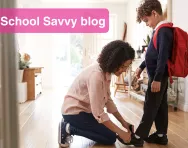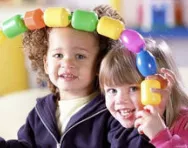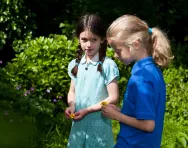Important update from TheSchoolRun
For the past 13 years, TheSchoolRun has been run by a small team of mums working from home, dedicated to providing quality educational resources to primary school parents. Unfortunately, rising supplier costs and falling revenue have made it impossible for us to continue operating, and we’ve had to make the difficult decision to close. The good news: We’ve arranged for another educational provider to take over many of our resources. These will be hosted on a new portal, where the content will be updated and expanded to support your child’s learning.
What this means for subscribers:
- Your subscription is still active, and for now, you can keep using the website as normal — just log in with your usual details to access all our articles and resources*.
- In a few months, all resources will move to the new portal. You’ll continue to have access there until your subscription ends. We’ll send you full details nearer the time.
- As a thank you for your support, we’ll also be sending you 16 primary school eBooks (worth £108.84) to download and keep.
A few changes to be aware of:
- The Learning Journey weekly email has ended, but your child’s plan will still be updated on your dashboard each Monday. Just log in to see the recommended worksheets.
- The 11+ weekly emails have now ended. We sent you all the remaining emails in the series at the end of March — please check your inbox (and spam folder) if you haven’t seen them. You can also follow the full programme here: 11+ Learning Journey.
If you have any questions, please contact us at [email protected]. Thank you for being part of our journey it’s been a privilege to support your family’s learning.
*If you need to reset your password, it will still work as usual. Please check your spam folder if the reset email doesn’t appear in your inbox.
Teacher concerns: nearly half of school starters not ready

Are you or someone you know preparing for the first day of school with your child next September?
As much as this moment is a precious and monumental one, and there will be much on your mind (school uniform, your child making friends, how to manage the school run etc.), there are several important development milestones to consider.
A report from Kindred, an early-years charity, has shed light on some challenges our youngest learners might be facing as they embark on their school journey.
Mainstream media, such as the Guardian, focused on the reveal that "One in Four School Starters Not Toilet-Trained”. While this is a worry for many, it's not just about bathroom breaks. As a headteacher, I know that the bigger concern for teachers is that many children seem to be arriving at school simply not ready to learn.
46% of pupils struggling with fundamental skills
Teachers are seeing a significant increase in the number of children who lack basic skills needed to thrive in the classroom. We're talking about things like sitting still, playing cooperatively, dressing independently and even holding a book the right way. Nearly half (46%) of pupils reportedly struggle with these fundamentals.
The report by Kindred found that teachers are spending a whopping 2.5 hours a day – a third of their teaching time! – helping children with these basic skills. This means less time for actual learning, which can put these children at a disadvantage from the very beginning.
What’s really surprising is the gap between what parents perceive and what teachers experience. While 91% of parents believe their child is school-ready, the reality in the classroom paints a different picture.
There's also a disagreement about who's responsible for certain skills – only half of parents believe toilet training falls solely to them, and 20% don't think it's even necessary before school starts.
Teachers, parents and DfE working together
But it’s not about pointing fingers, and it doesn’t help the situation to get caught up in the blame game. Parents and schools want what's best for children. Better communication and earlier guidance for parents on child development milestones will go a long way – after all, knowledge is power and with more information and understanding, parents and teachers can better support children. The Department for Education is stepping up too, offering training and resources for early-years educators, along with programs for parents.
Schools are also looking for ways to collaborate with families to ensure a smooth transition – after all, a child's success starts at home and flourishes at school.
Sending your child off to school is a big deal. But let's make sure they're equipped with all the foundational skills they need to thrive. By working together, parents and teachers can create an environment where every child, from day one, has the chance to shine.
Matt Revill is a primary school headteacher with over 20 years experience of working in schools. He has worked in a range of settings and currently works within a multi-academy trust of 14 schools. In his free time, he enjoys reading, computing, holidaying and spending time with his family and friends. Matt has a son who is currently working his way through A-levels at college.







